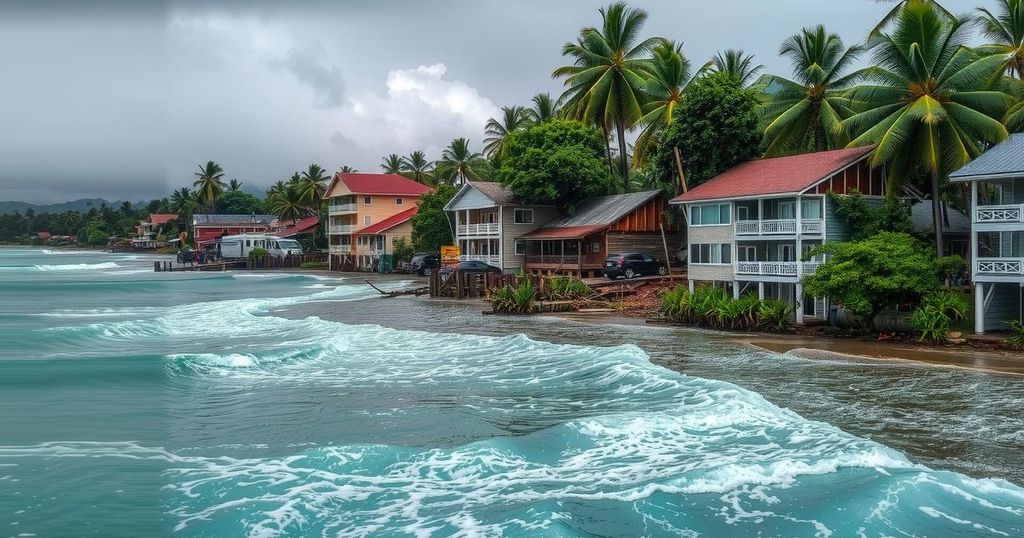Mayotte is currently under red alert due to Tropical Storm Dikeledi, which follows Cyclone Chido’s devastating impact just weeks prior. Residents are instructed to stay indoors and secure supplies as the storm threatens to bring heavy rains and strong winds, raising concerns about flooding and landslides. Emergency services are mobilized, and hurricane shelters are being opened as the territory confronts the aftermath of recent disasters that resulted in numerous casualties and widespread destruction.
Tropical Storm Dikeledi has struck Mayotte, France’s poorest territory, just weeks after Cyclone Chido wreaked havoc across the islands. Authorities have issued a red alert, instructing residents to remain indoors and stockpile food and water. The storm is expected to bring heavy rain and strong winds, exacerbating the region’s vulnerability following last month’s cyclone, which resulted in at least 39 fatalities and left over 5,000 individuals injured. Dikeledi initially made landfall as a cyclone in Madagascar, causing three additional deaths, but weakened to a tropical storm as it approached Mayotte. Despite this, meteorologists caution that it could regain strength.
Many areas in Mayotte are at risk of severe flooding and landslides, leading to additional shelter provisions being opened in schools and community centers for those still displaced by Chido. Even prior to Dikeledi’s arrival, many residents were struggling for adequate shelter due to the prior cyclone’s devastating impact. Emergency officials are fully mobilized in anticipation of potential disasters that may unfold. The national airport remains closed due to damage from Chido, emphasizing the ongoing challenges the territory faces. The social response following Cyclone Chido has also highlighted longstanding grievances regarding the perceived neglect by the French government towards Mayotte.
Mayotte is an archipelago located in the Indian Ocean and is classified as the poorest department of France. It has experienced significant recent environmental crises, including Cyclone Chido, which occurred in December and caused extensive damage and loss of life. With the cyclone season from November to April, the region is susceptible to extreme weather events. The geography of Mayotte, with a high population density and undocumented migrants seeking refuge, further complicates the resilience of its communities against natural disasters. Dikeledi is the latest threat, underscoring the ongoing hardships faced by the island’s residents.
In conclusion, Tropical Storm Dikeledi compounds the difficulties Mayotte faces following the recent catastrophic effects of Cyclone Chido. With robust precautions being implemented, including evacuations and emergency shelters, local authorities are striving to safeguard the population against further damage. Even as the storm dissipates, the vulnerabilities exposed by recent disasters emphasize the need for a comprehensive response to the social and infrastructural challenges existing within Mayotte.
Original Source: www.euronews.com






